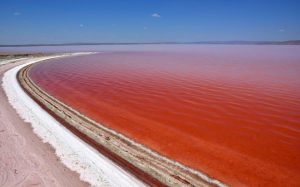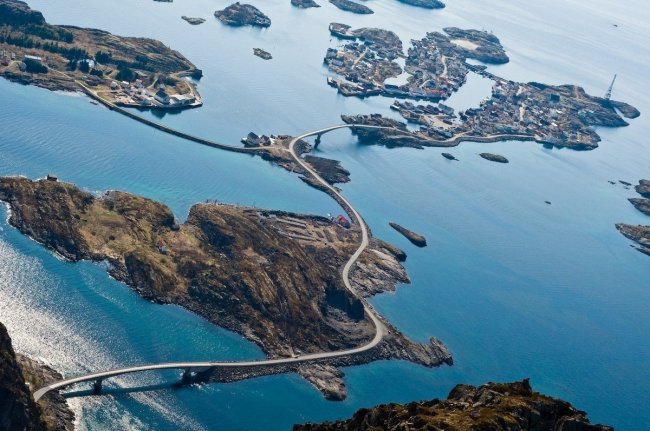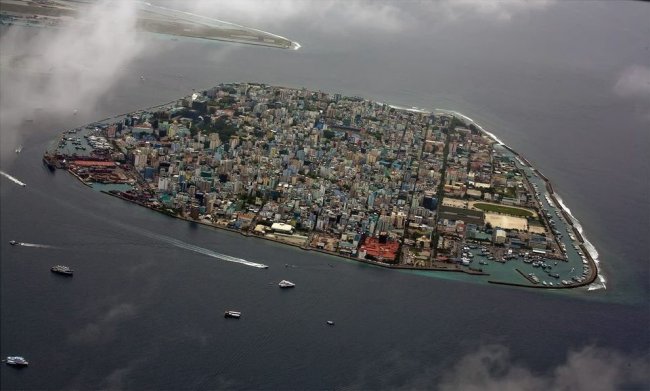Turkish salt lake Ace
 Turkey produces most of the salt from one of the most protected lakes called Ace. In Turkish, it sounds like Tuz Gölü, which translated into Russian, literally means Salt Lake. About three officially registered mines are used for salt extraction. Ace is one of the largest lakes available in Turkey. It absorbs two deep streams and forms a salty marsh. However, in summertime, when the light of the sun reaches an elevated temperature, more than eighty percent of the lake dries out, and a thirty-centimeter layer of salt appears. Precipitation and underground sources help to maintain balance. In winter, the salt layer goes away because of the large amount of fresh water that comes from the nearest surface and groundwater.
Turkey produces most of the salt from one of the most protected lakes called Ace. In Turkish, it sounds like Tuz Gölü, which translated into Russian, literally means Salt Lake. About three officially registered mines are used for salt extraction. Ace is one of the largest lakes available in Turkey. It absorbs two deep streams and forms a salty marsh. However, in summertime, when the light of the sun reaches an elevated temperature, more than eighty percent of the lake dries out, and a thirty-centimeter layer of salt appears. Precipitation and underground sources help to maintain balance. In winter, the salt layer goes away because of the large amount of fresh water that comes from the nearest surface and groundwater.
This wonder of nature is located in Central Anatolia, just two hours drive from Konya silt. Local people are diligently engaged in the industry associated with the processing of salt and its implementation in countless markets in Turkey. By the way, Turkey annually pumps out about one hundred and fifty tons of salt here, which by chemical composition is very similar to cooking. Bacteria and microalgae contained in Lake Tuz, with high ultraviolet radiation, give the water a red hue. Such changes in color, like a magnet, attract whole flocks of flamingos, kestrels and a huge number of white-fronted geese.
Most tourists come from Ankara, as the road takes only 3 hours. The area of this attraction is equal to one thousand five hundred square kilometers, although the depth varies from 1 to 3 meters, depending on the time of year. On the southern shore of the lake grows a huge amount of reeds. Lake Tuz received the status of a specially protected area only in 2001, after increasing the population of Flamingos on the nearby islands. In addition, scientists have found that most of the water goes to fill the tectonic depression.
When evaporation of more than 90 percent of the water, Lake Ace turns into a white desert, resembling a snowy clearing, consisting of bright salt crystals. According to the University of Construction and Geodesy Aksaray, the state of the lake has deteriorated by eighty-five percent over the past hundred years, and under current conditions, the Ace is in danger of disappearing. If the Turkish government cannot do anything to improve conditions, then perhaps future tourists will not be able to see this beauty. Therefore, you should take the opportunity to go on a trip to the province of Anatolia.






